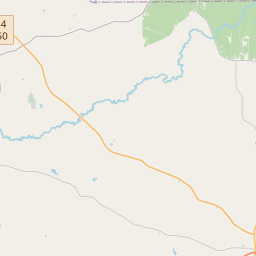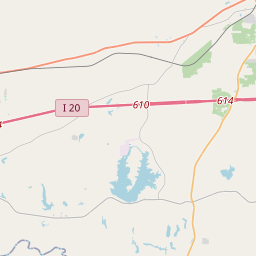First Baptist Church













John Bryce (1784-1864), Baptist missionary and secret agent for U. S. President John Tyler during Texas annexation negotiations, and the Rev. George Washington Baines, great-grandfather of President Lyndon Baines Johnson, founded this church shortly before Texas became a state in 1845. Dr. William Evans, Marshall's first physician, and other leaders of the pioneer community were among the twelve charter members. Throughout its history, this fellowship has included men and women who were leaders in the city, state, and Baptist faith.
Services were held in a brush arbor or nearby log schoolhouse until 1849, when a church building was erected on this lot, donated by State Legislator James McCown (1808-55). The small frame structure was replaced by a larger building in 1892.
Members of this congregation organized the Second Baptist Church in 1904. They also helped establish the College of Marshall in 1912. This junior college later became East Texas Baptist College, a four-year school which is still actively supported by this church.
The present sanctuary was constructed in 1953, and the children's building was completed in 1955. A new education building and chapel were erected in 1972, completing the church complex
As one of the most visible programs of the Texas Historical Commission (THC), historical markers commemorate diverse topics in Texas history, including: the history and architecture of houses, commercial and public buildings, religious congregations, and military sites; events that changed the course of local and state history; and individuals who have made lasting contributions to the state, community organizations, and businesses.
The Battle of San Jacinto fought on April 21, 1836, was the decisive battle of the Texas Revolution, and led to the capture of Santa Anna and the end of the conflict.
During the mid-19th century, Harrison County played a significant role in the development of Texas. The discovery of oil in the nearby East Texas Oil Field in 1930 brought prosperity and growth to the county. This led to the establishment of several oil companies, driving economic development and creating job opportunities for local residents.
Harrison County was also deeply impacted by slavery and the Civil War. Prior to the war, the county was home to numerous large plantations that relied on enslaved labor for agricultural production. The war left a lasting impact on the county, which continued to struggle with racial tensions and inequality in the years following the war.
Today, Harrison County remains an important part of Texas history and boasts a diverse and vibrant community. The county is home to a number of historic sites, including the Texas and Pacific Railway Depot and the W.C. Dewberry Home and Museum, which showcase the area's rich cultural heritage. With its blend of history and modern progress, Harrison County continues to be a significant contributor to the growth and development of Texas.
Harrison County Timeline
This timeline provides a concise overview of the key events in the history of Harrison County, Texas.
- 1839 - Harrison County established as a county in the Republic of Texas
- 1840 - Marshall becomes the county seat of Harrison County
- 1861-1865 - Harrison County residents serve in the Confederate Army during the American Civil War
- 1873 - Great Fire of Marshall destroys much of the city
- 1881 - First telephone exchange established in Marshall
- 1902 - Texas and Pacific Railway brings economic growth to the county
- 1930s - Oil discovery leads to an economic boom in Harrison County
- 1979 - East Texas Oil Museum opens in Kilgore, showcasing the region's oil industry
- 2005 - Hurricane Rita causes significant damage to the county
- 2020 - Present day